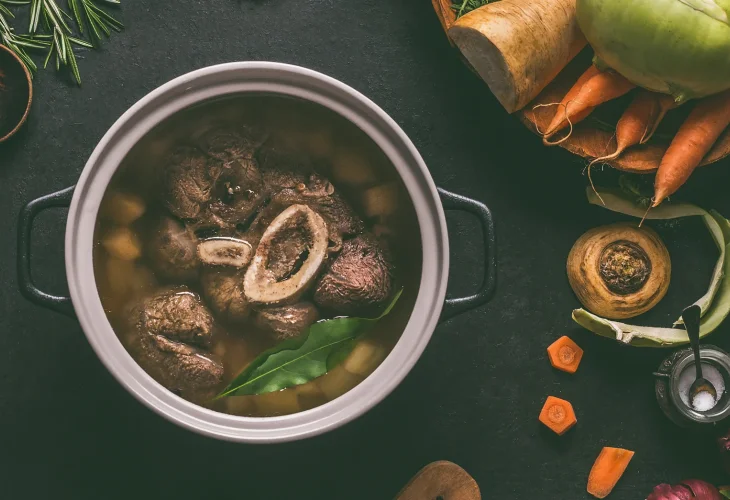History and Archaeology
Cholent and the Fire of Faith: How a Shabbat Dish Became a Symbol of Jewish Tradition
Beyond flavor and nostalgia, the story of chamin reveals a centuries-old battle over the meaning of Shabbat — from the Karaites’ darkness to the rabbis’ light, and the enduring warmth of Jewish unity around a pot of slow-cooked faith
 (Photo: shutterstock)
(Photo: shutterstock)Cholent — or chamin, s’chīna, t’bit — has countless names and variations across Jewish communities. Among Ashkenazim it’s cholent, among Moroccans s’chīna, and among Iraqi Jews t’bit. What unites them all is this: the dish is prepared before Shabbat, left to simmer overnight on a covered flame, and enjoyed piping hot the next day. For many, it’s a nostalgic comfort food that warms body and soul — a taste of home that transcends generations.
But cholent is not only about nostalgia. It’s also halacha — Jewish law. Nearly a thousand years ago, Rabbi Zerachiah HaLevi of Spain wrote: “Anyone who does not eat hot food on Shabbat — we investigate whether he may be a heretic.” His words were later codified by the Rema. Eating warm food on Shabbat, it turns out, is a mitzvah.
The Battle Over Fire
Why was this so important? The answer lies in an ancient theological struggle — the fight against the Karaites. Originating as a political movement, the Karaites became a fiercely oppositional sect centered in Babylonia. One of their main propaganda claims was that rabbinic Jews desecrated Shabbat.
The Torah states: “You shall not kindle fire in any of your dwellings on the Sabbath day.” The Karaites took this literally, insisting that even a pre-lit flame must be extinguished for Shabbat. So while rabbinic Jews enjoyed warm food and glowing candlelight, the Karaites sat in cold, dark homes — eating cold meals and priding themselves on what they thought was piety.
The rabbis explained that the Torah prohibits kindling a new fire, not maintaining one. Keeping a flame lit in honor of Shabbat, they taught, brings light, peace, and joy — the very essence of oneg Shabbat.
A King, a Prisoner, and a Rabbi
The Karaite influence once spread so widely that in some cities, they tried to impose their practices by force. In 1178, in the Spanish city of Carrión, where Karaites held power, a simple Jew was arrested for lighting Shabbat candles and leaving chamin on a covered flame.
Rabbi Moshe de León later described the absurd event. The case reached King Alfonso VIII of Spain, who turned to his physician, Rabbi Yosef Alphakar, for clarification. The rabbi explained that the Karaites’ interpretation was mistaken — true honor to Shabbat is found in light and warmth, not darkness and cold. The king freed the man and issued a royal decree forbidding the enforcement of Karaite law on Jews anywhere in Spain.
Rabbi Saadia Gaon’s Wit
The main battle took place not in royal courts, but in the study halls. The great Rabbi Saadia Gaon, often challenged by Karaite debaters, cleverly announced that anyone wishing to question him could do so on Friday night — when he sat by the Shabbat candle, ready to answer. The Karaites, unwilling to be seen “benefiting from fire on Shabbat,” stayed away — effectively silencing their own arguments.
Centuries later, the Maggid who appeared to Rabbi Yosef Karo (author of the Shulchan Aruch) told him: “Be careful to light the candles and keep the flame burning on Shabbat. As it says, ‘The wicked will be silent in darkness.’”
From the Karaites to the Modern Day
Even the later maskilim — Jewish Enlightenment figures — joined the campaign against the traditions of chamin, though for very different reasons. Yet over time, even the Karaites themselves grew lenient: they now allow electricity on Shabbat and even cook on electric plates — and perhaps, in secret, sneak a taste of cholent.
As for us, we hold fast to our tradition — preparing hot food for both the Friday night and Shabbat morning meals. From Sinai until today, the flame of oneg Shabbat has never gone out.

